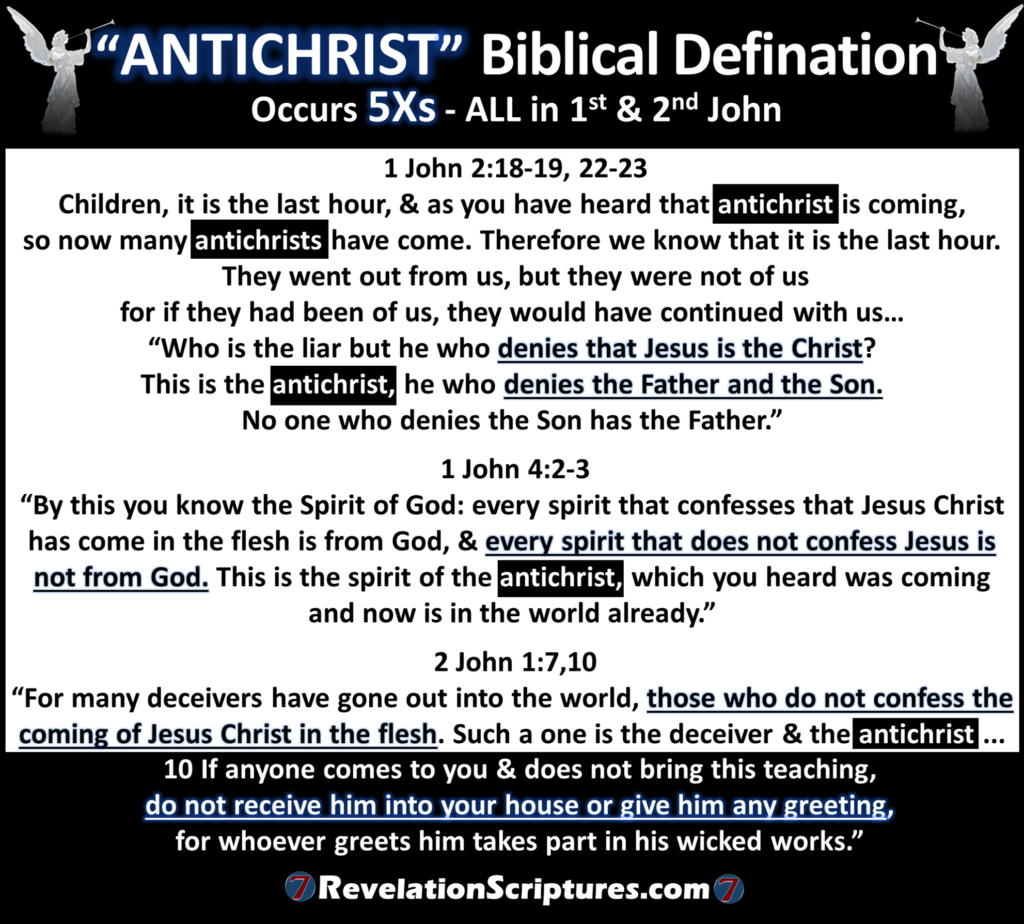Is it possible that the ancient prophecies are not mere stories of the past but rather blueprints for the future? The concept of the Antichrist, a figure of immense power and deception, has captivated and troubled minds for centuries, offering a compelling, if unsettling, lens through which to view the unfolding narrative of our world.
The study of biblical prophecy is far more than an academic exercise; it's a spiritual discipline that cultivates readiness and resilience. Engaging with these texts encourages informed conversations within faith communities, providing a framework for understanding and navigating the complex challenges of our contemporary world. The Bible, a source of both comfort and challenge, offers detailed descriptions of the Antichrist across various books, painting a picture of an adversary that is both multifaceted and deeply rooted in the fabric of human history.
It may come as a surprise that the term "Antichrist" appears explicitly only in the epistles of John, specifically in 1 and 2 John. Notably, the word appears in both singular and plural forms, signaling a duality to the conceptboth an individual and a pervasive spirit of opposition. In 2 Thessalonians 2, Paul refers to this figure as "the man of lawlessness," a label that hints at the Antichrist's core nature: a rebel against divine authority. This individual, according to the scriptures, seeks to supplant God's law with their own, embodying a rejection of the very foundations of faith. The Bible defines an Antichrist as someone who denies the Father and the Son, which, in the context of Christian theology, signifies a denial of the divinity of Jesus Christ and his role as savior.
- Explore Streaming Options More For Vega Your Guide
- Hot Now Temporary Replacement Videos More Dont Miss Out
To further delve into this figure, here's a table summarizing the key aspects of the Antichrist based on biblical interpretations:
| Characteristic | Description | Biblical Reference |
|---|---|---|
| Opposition to Christ | The Antichrist is fundamentally opposed to Jesus Christ, His teachings, and His followers. | 1 John 2:22, 4:3 |
| Deception | The Antichrist will deceive many through false signs and wonders. | 2 Thessalonians 2:9-10 |
| Self-Exaltation | The Antichrist will seek to elevate himself above God, claiming divine authority. | 2 Thessalonians 2:4 |
| Lawlessness | The Antichrist will be a personification of lawlessness, rejecting moral and spiritual principles. | 2 Thessalonians 2:3 |
| Rejection of Jesus | The Antichrist will deny Jesus Christ as the Son of God and the savior of mankind. | 1 John 2:22 |
| Destruction | The Antichrist's actions will lead to destruction and chaos. | 2 Thessalonians 2:3 |
| Political Power | The Antichrist will gain significant political influence and control. | Revelation 13 |
| World Influence | The Antichrist's influence will extend globally. | Revelation 13 |
| Final Defeat | The Antichrist will ultimately be defeated by Jesus Christ at his second coming. | Revelation 19:20 |
The early Christian writers and theologians interpreted the Antichrist as a specific individual who would appear in the "last days," a time marked by increased wickedness, apostasy, and trials for believers. The Book of Revelation provides a vivid portrait of the Antichrist, often referred to as the "beast," and his reign of terror. The Antichrist, in this view, is not just a person, but a system and a force that opposes the will of God and seeks to lead humanity astray.
Beyond the individual, the Bible also speaks of the "spirit of the Antichrist," an influence that is already present in the world, subtly undermining faith and truth. This spirit manifests in any teaching or influence that rejects or distorts the truth about Jesus's identity, his incarnation, and his atoning work. It is a constant struggle against falsehood and deception, a spiritual battle waged on the battlefield of hearts and minds.
- Chlo And Matt Tiktok Viral Content Where To Find It Now
- Dive Into Mathplayzone Fun Games Learning Adventures
The historical and theological context of the term "Antichrist" is crucial. The term originated in the letters of John, where he identified false teachers who denied that Jesus was the Christ as "antichrists." This early use of the term highlights a key aspect of the Antichrist: the denial of Jesus's true nature. The understanding of the Antichrist evolved over time, with further details emerging in the Book of Revelation and other biblical texts. Medieval texts added to the narrative, and the "Antichrist legend" became a prominent theme in Christian literature.
The Antichrist, as presented in prophecy, possesses certain identifying characteristics that set him apart. Revelation 1 describes the Antichrist as having ten horns and seven heads, symbolic of his power and dominion. In Daniel 7, the Antichrist is depicted as a boastful king who opposes the Jews and seeks to change the set times and the laws. The Antichrist's rise to power, as interpreted through biblical prophecy, is a complex interplay of political maneuvering, deception, and manipulation. He is often portrayed as a skilled orator and a charismatic leader who deceives the world and unites people under his authority.
The Antichrist's opposition to Christ and his followers is a consistent theme throughout scripture. In Revelation 13:4, the Antichrist is worshiped by those who have been deceived, with the dragon (Satan) bestowing authority upon him. This passage underscores the Antichrist's ability to garner allegiance and influence on a global scale. The rise of the Antichrist is often linked to the re-emergence of ancient empires or systems, setting the stage for his reign of terror. The Antichrist's ultimate goal is to establish a global government and a new world order that opposes the kingdom of God.
The Antichrist will usher in a new religious system. This system is described in Revelation 17 as a mixture of various beliefs intertwined with occultism. This system is marked by deception, leading many astray from the truth of the Gospel. This new religious system is described by some to be a one-world religion, encompassing various religious traditions under the banner of the Antichrist, ultimately rejecting the divinity of Jesus Christ. The Antichrist will harness the world's economic system, gaining control over global trade and finance, forcing people to accept his mark to participate in economic activities.
The Antichrist's rise and activities are often associated with specific events or conditions, such as the rebuilding of the Third Jewish Temple in Jerusalem. According to some interpretations, the Antichrist will broker a peace treaty in the Middle East, creating a false sense of security that will ultimately lead to his rise to power. The Antichrist's reign will be characterized by persecution and suffering for those who remain faithful to God.
It is essential to note that the Antichrist's ultimate destiny is sealed. The Bible declares that Jesus Christ will defeat the Antichrist and his forces at the Battle of Armageddon, marking the end of his reign and the triumph of good over evil. This final confrontation represents the ultimate victory of Christ over all opposition and the establishment of His eternal kingdom.
The understanding and interpretation of the Antichrist, and the prophecies surrounding it, have varied throughout history. Different theological schools and interpretations offer diverse perspectives on the Antichrist's identity, actions, and the timing of his appearance. Some interpretations focus on the Antichrist as a future individual, while others see the Antichrist as a symbol of evil or a collective force that opposes Christ. The most important thing is to approach the topic with humility and to be grounded in a deep understanding of the scripture.
The concept of the Antichrist is a call to discernment, vigilance, and spiritual preparation. The long and the short of it, is to resist the spirit of the Antichrist in all its forms. The Bible warns against deception, encouraging believers to test the spirits and to be rooted in the truth of God's word. As the Apostle John wrote, "Little children, it is the last hour; and as you have heard that the Antichrist is coming, even now many antichrists have come, by which we know that it is the last hour." (1 John 2:18). The spirit of the Antichrist is already at work, challenging us to remain steadfast in our faith, to love the truth, and to be prepared for the coming of the Lord.
- Jordan Reign Jackson Oshea Jackson Jrs Daughter Family Life
- Latest Movie Reviews Updates Movierulz More


